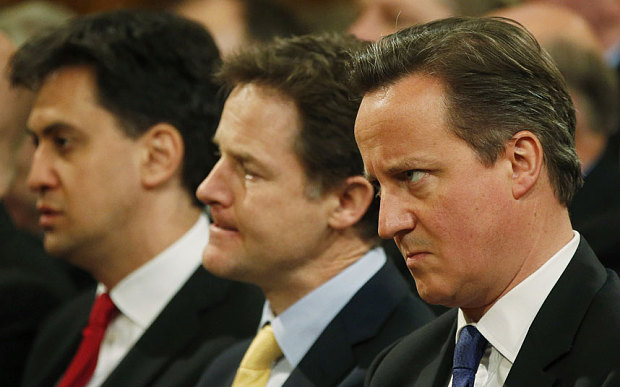It’s a frequent complaint among the electorate. Whatever party they represent, politicians are ‘out of touch with ordinary people’, ‘liars’ and quite simply, ‘weird’.
Of course, people don’t say these things without good reason. The accusation of politicians being liars is well-founded by a legacy of false promises, manipulated truths and outright dishonesty. But the idea of them being out of touch has manifested specifically out of a political elite at Westminster that has long been dominated by white, middle-class old men, and this continues to be the case.
Our country is run by people who come from the same kind of background and class, and most bizarrely, by lots of men who went to the same school
When you have a government that appears to be almost homogeneous, it’s no surprise that people who can’t identify anyone like them in the line-up are going to see them as another species altogether. By having a group of people in charge of us who look, sound and act the same, it’s no wonder that so many people feel the government doesn’t represent them.To give this some perspective, there are currently 148 female MPs (around 23 percent of all MPs) when women comprise of just over half of the population. There are only 27 minority ethnic MPs (just over four percent) and a mere handful of disabled MPs.
So our country is run by people who come from the same kind of background and class and most bizarrely, by men who went to the same school. The other issue for modern politicians is the balancing act between appearing professional- like they can run a country- and being a human who can have a laugh and isn’t so removed from ordinary life that, to use that well-worn cliché, they don’t know the price of a pint of milk.

The ramifications of leaning too far either way are clear. Cameron’s seriousness over the course of the election has led some Conservative donors to label his campaign as dull and uninspiring. Either you’re so boring that people don’t engage with you, or you’re at risk of not being taken seriously at all when it comes to actual politics. I certainly feel that the latter applies to Boris Johnson.
Recent events however, would suggest that some people don’t really want our politicians to be too much like us. For instance, we’ve witnessed a media frenzy over the fact that Ed Miliband had other girlfriends before marrying his wife, Justine. What for any other person in any other profession is completely acceptable in politics is a source of contention that warrants it being front page news. Miliband’s past relationships were used by right-wing commentators as a means of shaming and attacking him, a pawn used to paint him as someone who would make a bad Prime Minister. Cameron also came under fire for claiming to feel “bloody lively”- a positive emotion in normal people- about his campaign. I can find many faults with David Cameron, but surely expressing a semblance of a personality is a good thing?

For young people at least though, there seems to be a desire to see more of the down to earth side of politicians. The abundance of memes of Miliband eating a bacon sandwich alone proves this. In the lead up to the election we have also seen the emergence of teen girl fandom on the political scene. Miliband now has the support of ‘Milifandom’, while Cameron has the ‘Cameronettes’, both of which are active on Twitter. The youth vote wants to engage with politicians on the same level as they do celebrities: read about the details of their lives in magazines, get a selfie with them and follow them on Twitter.
Encouraging an emphasis on personality of course, runs the risk that politics becomes less about policy. But in a digitalised, celebrity-oriented world, the modern politician can no longer ignore the fact that how you come across impacts on their ability to communicate policy. By this I don’t mean how you look physically, but they way you talk to voters and your demeanor. Part of Russell Brand’s appeal for example, is that he doesn’t talk down to his audience and doesn’t take himself too seriously.
Surely a politician who expresses a semblance of a personality can only be a good thing?
Regardless of which parties come out on top at the General Election, politics needs an image revamp. We desperately need more diversity, but we also need politicians who aren’t afraid to act a bit more human, and as a society we must to let them. Politicians, like everyone else, should own up to their mistakes, be honesty about their intentions and try to be a decent people. I hope at least some of them are up to the challenge. Politicians are human beings, so they should act like it.
Ella Griffiths

